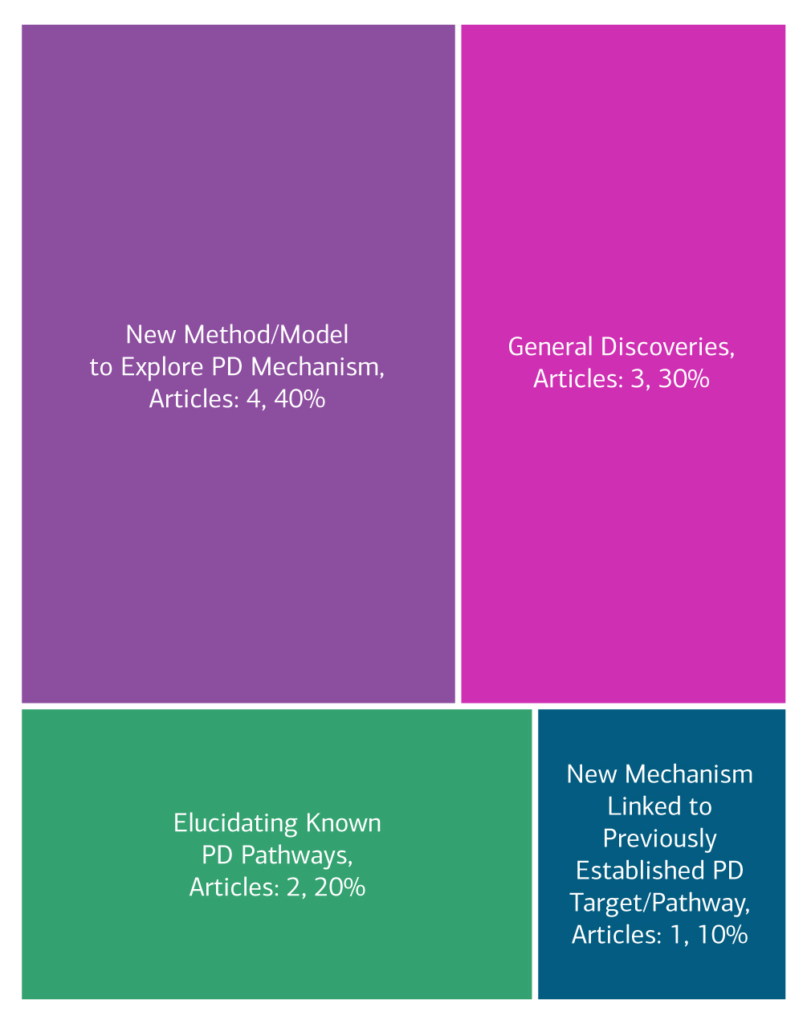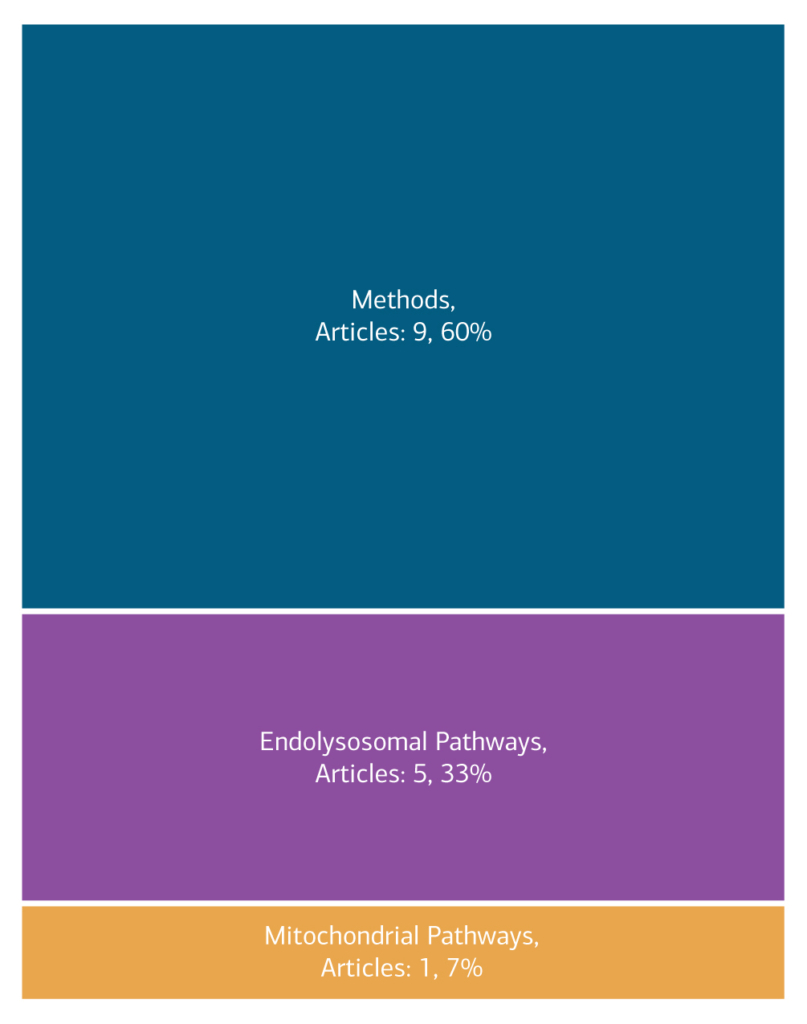PD Functional Genomics | 2020
Cellular Mechanism of LRRK2 in Health and Disease
Study Rationale: Leucine Rich Repeat Kinase 2 (LRRK2) is the most commonly mutated gene in inherited forms of Parkinson’s disease (PD). The LRRK2 gene codes for a protein kinase, an enzyme that adds chemical groups to other proteins to change their activity inside cells. However, researchers currently do not understand how LRRK2 normally works and why its malfunction causes PD. Importantly, LRRK2 has also been shown to function abnormally in PD patients that have the sporadic form of the disease, making LRRK2 one of the most promising targets for drug development.
Hypothesis: Team Reck-Peterson recently discovered that chains of the LRRK2 protein can wrap around cellular highways called “microtubules”. Their work suggests that LRRK2 blocks the cellular machines that move on these highways. Team Reck-Peterson will explore the idea that mutations in LRRK2 cause PD by acting as roadblocks that change the normal transport of chemical information inside cells. They will test additional ideas that arise from the experiments they perform.
Study Design: The collaborative team includes experts in cryo-electron microscopy (Cryo-EM), cryo-electron tomography (Cryo-ET), small molecule synthesis, proteomics, and single-molecule and live-cell imaging. The team will use their expertise to solve structures of multiple conformations and variants of LRRK2 to manipulate these different pools of LRRK2 and understand their cellular functions. Team Reck-Peterson will determine how LRRK2 binds to microtubules and affects microtubule-based motors. They will also identify the protein interaction landscape of LRRK2 and test emergent cellular hypotheses resulting from this work, including whether LRRK2 regulates the transport of chemical information on microtubules.
Impact on Diagnosis/Treatment of Parkinson’s Disease: A major barrier to developing LRRK2-based PD therapy has been the lack of a blueprint of LRRK2’s three-dimensional shape, alone or interacting with other molecules it comes into contact with inside human cells. Team Reck-Peterson expects that the work will reveal what LRRK2 looks like, what it does in cells, and why its malfunction causes PD. The work will be critical for the design of drugs targeting LRRK2.
Leadership
Project Outcomes
Team Reck-Peterson's work on LRRK2 will provide a comprehensive understanding of the structure and conformation-dependent association with cellular partners of this key target for the development of Parkinson’s disease therapeutics. View Team Outcomes.
Team Outputs
Click the following icons to learn more about the team’s outputs:
Overall Contributions
Here is an overview of how this team’s article findings have contributed to the PD field as of May 2025. There are two different categorizations of these contributions – one by impact to the PD community and a second by scientific category.
Impact

Category

Featured Output
Below is an example of a research output from the team that contributes to the ASAP mission of accelerating discoveries for PD.
Type-II kinase inhibitors that target Parkinson’s Disease-associated LRRK2
Team Reck-Peterson has worked to increase our understanding of LRRK2 biology. Numerous LRRK2-selective type-I kinase inhibitors have been developed, and some have entered clinical trials. In this study, the authors present the first LRRK2-selective type-II kinase inhibitors. These inhibitors were designed using a combinatorial chemistry approach fusing selective LRRK2 type-I and promiscuous type-II inhibitors by iterative cycles of synthesis supported by structural biology and activity testing. Their current lead structures are selective and potent LRRK2 inhibitors. Through cellular assays, cryo-electron microscopy structural analysis, and in vitro motility assays, they show that our inhibitors stabilize the open, inactive kinase conformation. These new conformation-specific compounds will be invaluable as tools to study LRRK2’s function and regulation, and expand the potential therapeutic options for PD.
Team Accolades
Members of the team have been recognized for their contributions.
- Awards
- 2023 Collaborative Meeting: Tamar Basiashvili (Second Place Winner in PD Functional Genomics; San Diego)
Other Team Activities
- Interest Groups: Structural Biology – Elizabeth Villa (Chair)
In the News
- UC San Diego scientists to explore new frontiers in Parkinson’s disease research with $7.2M grant (UC San Diego Today, September 17, 2020)
- $7.2M Grant advances work Into LRRK2 protein’s role in Parkinson’s (Parkinson’s News Today, September 24, 2020)











